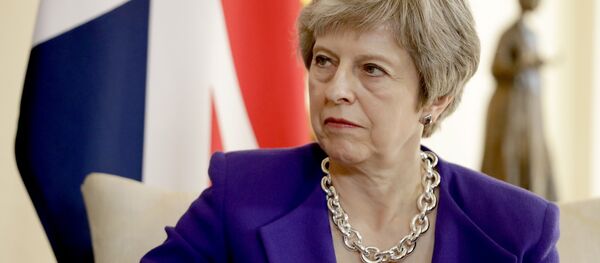"We’re already seeing a dwindling interest from overseas candidates, and combined with fierce competition for domestic students, this is creating serious financial challenges for UK universities," Sara Shaw, the partner and head of the Education Practice at Odgers Interim, told Sputnik.
"In a post-Brexit UK, it’s entirely possible that UK universities will look less attractive to international students who make up a significant proportion of both the undergraduate and post-graduate cohort. UK universities compete on the global stage and are in effect international commercial organizations that generate 95 billion [pounds, $123 billion] for the UK. The current political stance only serves to weaken their position and damage the UK’s economy," Shaw added.
In addition to the projected decline in international students due to Brexit uncertainties, the government upholds inclusion of foreign students in annual migration targets of fewer than one hundred thousand persons, a measure putting the United Kingdom at a disadvantage in the battle for foreign talents, according to earlier criticism by Karan Bilimoria, the president of the UK Council for International Student Affairs.
READ MORE: 'Dead in the Water': Brexit No Deal Has All Kinds of Ramifications — Professor
Prime Minister Theresa May has long resisted calls to remove international students from official government targets, advocating control over potential student "over-stayers" from her tenure as the home secretary onward.
May's use of data from the Office for National Statistics (ONS) – which she used to claim that sizable numbers of international students annually linger in the country following completion of studies – has repeatedly come under fire, however, with more recent ONS figures from last year indicating net migration has declined considerably since the 2016 Brexit referendum, student intake included.
Experts thus believe an unwelcoming immigration policy may be behind a sizable drop in student numbers, a factor causing a considerable loss of financial leverage for UK universities.
READ MORE: UK Financial Watchdog Warns of Possible Scams Amid Brexit 'Uncertainty' — Report
"Recent research shows a strong correlation between the net deficits of higher education institutions and their reduced number of international student enrollments," James Pitman, the UK managing director at Study Group, told Sputnik.
"This ‘hostile environment’ has driven a plethora of restrictive processes and barriers that have dissuaded students from coming to the United Kingdom versus our competitors," Pitman argued.
In order to build higher education as a sustainable export for the future, the government needed to remove international students from the net migration targets and offer attractive work opportunities for graduates, the expert concluded.




